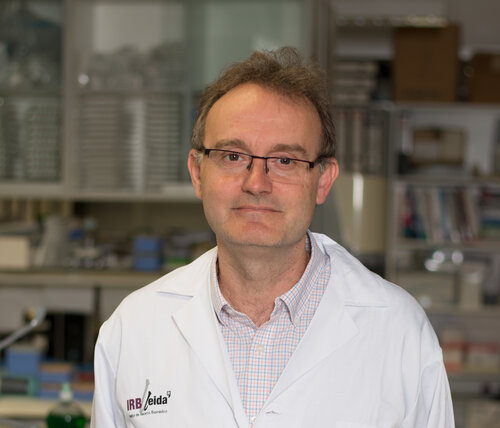The "la Caixa" Foundation promotes a project with the participation of IRBLleida to decipher the alteration of cellular metabolism in the development of ALS
A project led by researcher Estela Area, from the Margarita Salas Biological Research Centre (CIB-CSIC), and in collaboration with Manuel Portero-Otin, from the Institute of Biomedical Research of Lleida (IRBLleida-UdL), has received 500,000 €
Today in Barcelona, the "la Caixa" Foundation held a ceremony to award grants for 33 biomedical and health research projects to be carried out at research centres, hospitals and universities in Spain and Portugal. These projects have been selected within the framework of the CaixaResearch Health Research 2023 call, which aims to promote biomedical research of excellence with a high social impact in basic, clinical and translational research.
The call, to which 493 proposals were submitted this year, is especially aimed at tackling health challenges, such as infectious diseases (8 projects were chosen), neurosciences (7), cardiovascular and related metabolic diseases (7) and oncology (6). In addition, 5 more initiatives have been awarded for developing enabling technologies in one of these fields.
This year, a project has been selected with significant participation from Lleida. The researcher Estela Area, from the Margarita Salas Biological Research Centre (CIB-CSIC) leads a project that has received 500,000 euros from the "la Caixa" Foundation in collaboration with the Luzón Foundation. The project is carried out in consortium with Manuel Portero-Otin, from the Institute of Biomedical Research of Lleida (IRBLleida-UdL); Carmen Paradas, from the Institute of Biomedicine of Seville - Virgen de Rocío University Hospital, and Aurora Gómez Durán, from CiMUS at the University of Santiago de Compostela. Together, they want to analyse and monitor the metabolic alterations that occur in the membranes of the endoplasmic reticulum to find out what role these alterations play in the onset of amyotrophic lateral sclerosis (ALS), a neurodegenerative disease that affects motor neurons and of which between 1.5 and 2 new cases are diagnosed every year per 100,000 inhabitants worldwide.
Several previous studies have linked certain metabolic defects, such as dysregulation of blood lipid levels and insulin resistance, to the onset of this pathology, although the causes and consequences of these alterations and how they contribute to the breakdown of motor function are not yet well understood.
Previous studies carried out by the project team have shown that the metabolic alterations in the motor neurons of ALS patients, from the pre-symptomatic stages to the appearance of the first symptoms of the disease, take place in the cytoplasm of the cell, in a region called the endoplasmic reticulum, which carries out different cellular functions, and specifically in the membranes of the endoplasmic reticulum associated with the mitochondria. In fact, the regulation of fat metabolism takes place in these membranes of the endoplasmic reticulum.
In this project, researchers will analyse and monitor these metabolic alterations that occur at the endoplasmic reticulum membranes, both in animal models and in human cells and blood samples from ALS patients. The aim is to elucidate the role of these alterations in the functioning of the endoplasmic reticulum membranes in the onset of the disease. The knowledge generated will open the door to the possibility of finding new potential therapeutic targets.

IRBLleida and UdL researcher, Manuel Portero-Otin






